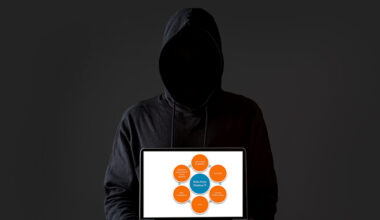Have you ever considered that your personal data might already be listed for sale on the dark web?
If you’ve ever created an online account, there’s a real chance your sensitive information is already circulating in underground markets. This article explores the dark web: why your data might already be for sale, how it got there, and how you can protect yourself starting today.
What Is the Dark Web, and Why Should You Care?
The dark web is a hidden part of the internet. Unlike websites you find on Google, the dark web requires special browsers, like Tor, to access. While some people use it for privacy-focused activities, many use it for illegal purposes, especially the buying and selling of stolen data.
Hackers and cybercriminals prefer the dark web because it gives them anonymity. Once your data ends up there, it doesn’t just stay with one criminal. Instead, it’s bought, sold, and reused repeatedly, all without your knowledge.
How Your Data Ends Up on the Dark Web
Your data doesn’t have to be stolen from you directly. Here’s how it usually happens:
-
Phishing attacks: You may click a fake link and unknowingly give away your login details.
-
Company data breaches: When big companies are hacked, user data is leaked.
-
Weak passwords: Reusing passwords across sites allows hackers to unlock multiple accounts.
-
Public Wi-Fi: Unsecured networks can expose your data to attackers.
These entry points are common, and hackers don’t need to know who you are. They target large groups of people, not individuals.
What Can Criminals Do With Your Data?
Once your information is in the wrong hands, it can be used for:
-
Identity theft
-
Unauthorized purchases
-
Opening bank accounts in your name
-
Extortion or blackmail
-
Targeted scams and phishing attacks
Even if you don’t notice the effects immediately, the long-term damage can be financially and emotionally draining.
How to Know If Your Data Is Already There
Many people only find out their data was compromised after the damage is done. But you don’t have to wait for that moment. Here’s what you can do:
-
Check breach databases: Use tools like Have I Been Pwned to search for your email.
-
Monitor financial activity: Watch for suspicious charges or account changes.
-
Enable alerts: Some cybersecurity tools notify you if your data appears on the dark web.
What You Can Do to Protect Yourself Now
You can act today to reduce your risk, and it doesn’t require expensive tools or tech skills:
-
Change your passwords: Use a strong and unique password for every account.
-
Use a password manager: This simplifies creating and managing secure logins.
-
Enable multi-factor authentication (MFA): Add a second layer of protection to your accounts.
-
Be cautious online: Don’t click on suspicious links or download unknown files.
-
Limit personal info sharing: Think twice before sharing sensitive details online.
Final Thoughts: The Threat Is Real, But So Is Your Power to Stop It
The dark web doesn’t care if you’re a student, a business owner, or someone who just browses occasionally. Your data holds value. If you’re not actively protecting it, you may already be vulnerable.
The good news? You don’t have to figure it all out alone.
Want to Know If Your Data Is Already at Risk?
Book a free consultation now
Our cybersecurity experts will guide you through how to check for exposure and share exactly how to protect your data moving forward.


